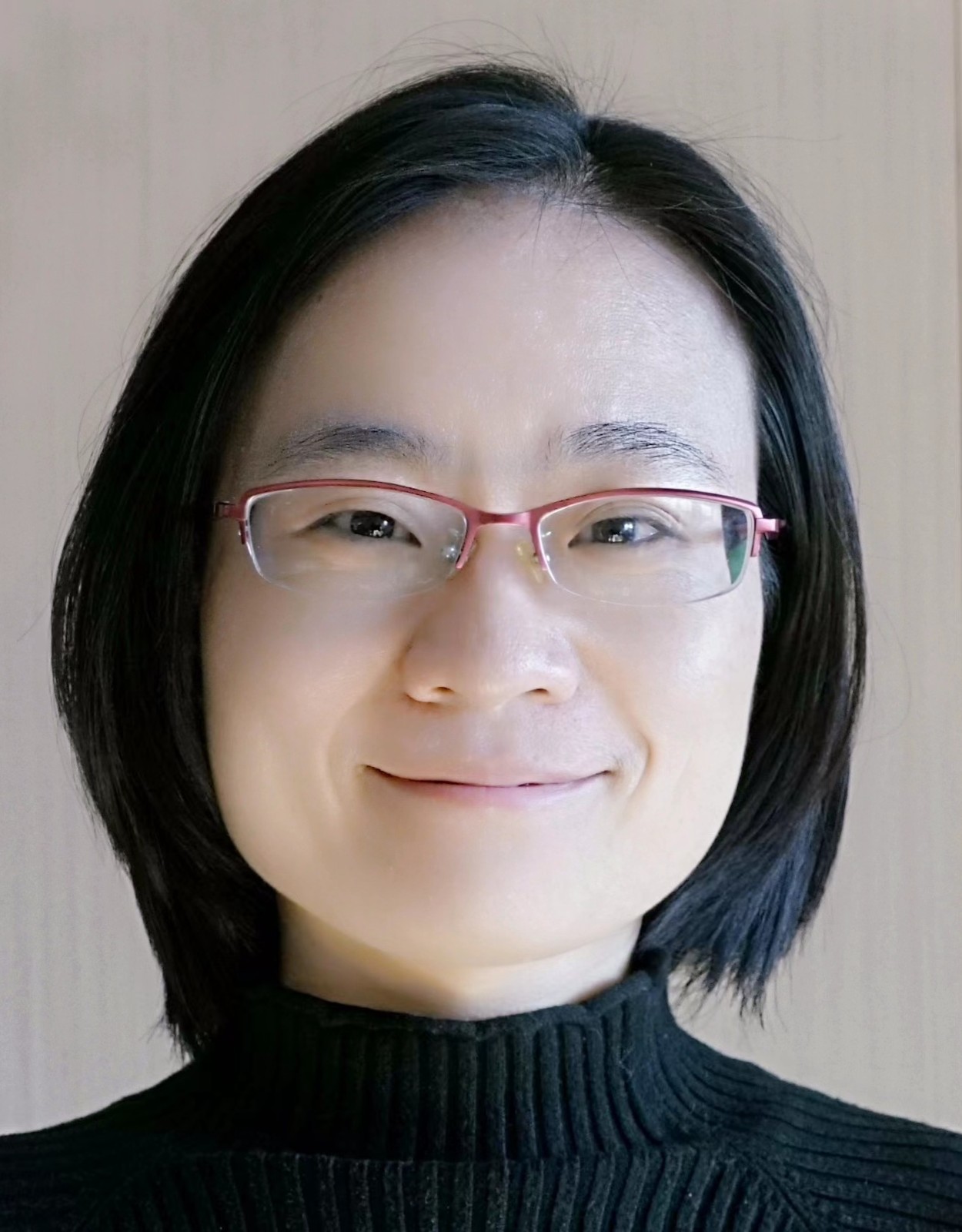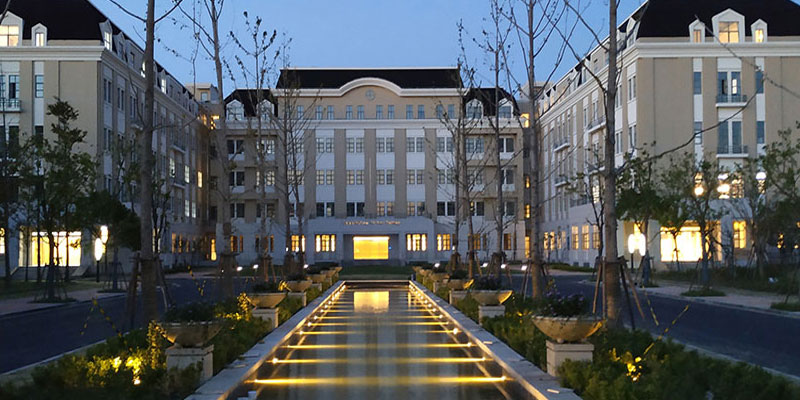全职导师

教育背景
2013-2018, 明尼苏达大学-双城校区(美国), 环境管理,博士
2008-2011, 中国科学院生态环境研究中心,生态学,硕士
2004-2008, 武汉理工大学资源与环境工程学院,环境科学,学士
工作经历
2024.01-现在, 上海交通大学, 中英国际低碳学院,副教授
2021.09-2023.12, 上海交通大学, 中英国际低碳学院,助理教授
2019.08-2021.08, 普林斯顿大学(美国),土木和环境工程系,博士后/副研究学者
2018.06-2019.07, 明尼苏达大学-双城校区(美国),汉弗莱公共事务学院,博士后
研究方向
- 城市多基础设施集成的碳足迹核算
- 城市净零碳转型路径分析
- 城市多基础设施集成低碳转型的多重社会-环境影响评价
科研项目
-
国家自然科学基金委项目. 多基础设施集成视角下优化城市能-水-碳耦合关联的路径研究. 2026-2029. 主持
-
国家自然科学基金委项目. 城市跨部门能量交换的机制和碳减排效应研究. 2024-2026. 主持
-
中共榆林市榆阳区委政策研究室重点课题. 榆阳区减碳降耗综合策略与实施路径研究. 2025-2026. 主持
-
国际资源委员会(IRP为联合国环境规划署的全球科学政策平台)项目. Decarbonizing Global Cities with Environment, Health and Biodiversity Co-Benefits: A Land-Use Linked Multi-Sector Provisioning Systems Approach. 2024-2026. 在研. 中国研究团队负责人
-
上海市2023年度“科技创新行动计划”软科学研究项目. 全球城市碳中和决策中碳分析方法的应用特征研究. 2023 -2024. 结题. 主持
-
2023年度上海市人民政府决策咨询研究重大课题. 上海低碳制度设计及与国际低碳制度衔接研究. 2023. 结题. 主持
-
上海交通大学-爱丁堡大学种子基金项目. 面向净零碳转型的城市能源政策和管理研究. 2023-2024. 结题. 主持
-
晶澳太阳能科技股份有限公司. 国内外高等院校可持续发展及“双碳”人才教育体系建设. 2024. 结题. 主持
入职LCC前的科研项目
-
美国国家科学基金项目. SRN: Integrated Urban Infrastructure Solutions for Environmentally Sustainable, Healthy, and Livable Cities. $12 million. 2015-2023. 主要参与人
-
美国国家科学基金项目. PIRE: Developing Low-Carbon Cities in the US, China, and India Through Integration Across Engineering, Environmental Sciences, Social Sciences, and Public Health. $4.45 million. 2012-2018. 主要参与人
-
美国国家科学基金项目. S&CC: Connecting the Smart-City Paradigm with a Sustainable Urban Infrastructure Systems Framework to Advance Equity in Communities. $2.5 million. 2017-2021. 一般参与人
代表性论文专著
代表性学术论文(*通讯作者)
-
Gu, Y.1, He, Y.1, Tong, K.1,*, Sun, K., & Chen, W.-Q.. Spatial and temporal patterns of urban energy-carbon nexus associated with multiple infrastructure provisioning sectors. Resources, Conservation and Recycling. 2025. 223, 108532. DOI: https://doi.org/10.1016/j.resconrec.2025.108532
-
Sun, K.1, Tong, K.1,*, Xu, J., Shan, Y.. Developing a novel city-wide useful energy demand model based on detailed energy conversion processes. Energy. 2025. 323.135833. DOI: https://doi.org/10.1016/j.energy.2025.135833
-
Tong, K.*. Urbanization moderates the linkages between energy resource and human well-being: insights from subnational analyses in China. Journal of Cleaner Production. 2024. 476. 143776. DOI: https://doi.org/10.1016/j.jclepro.2024.143776
-
Sun, S., Tong, K.*. Rural-urban inequality in energy use sufficiency and efficiency during a rapid urbanization period. Applied Energy. 2024. 364, 123133. https://doi.org/10.1016/j.apenergy.2024.123133
-
Tong, K.*, Sun, S. Multi-dimensional decoupling analysis in the context of energy use: dynamic well-being, resource, and impact decoupling relationships in China. Applied Energy. 2024. 359. 122726. https://doi.org/10.1016/j.apenergy.2024.122726
-
Tong, K.* Net-zero-carbon urban transitions need systems thinking. (Voices: "Opportunities and barriers to net-zero cities"). One Earth. 2022. 5(7), 739-744. DOI: https://doi.org/10.1016/j.oneear.2022.06.013
-
Tong, K., Ramaswami, A.*, Xu, K., Feiock, R., Schmitz, P., Ohlsen M. Measuring social equity in urban energy use and interventions using fine-scale data. PNAS. 2021. 118 (24) e2023554118 DOI: https://doi.org/10.1073/pnas.2023554118
-
Ramaswami. A., Tong, K., Canadell J., Jackson. R., Stokes, E. Dhakal S., Finch. M., Jittrapirom P., Singh. N., Yamagata Y., Yewdall E., Yona L., Seto, K.. Carbon analytics for net-zero emissions sustainable cities. Nature Sustainability. 2021. 4(6). 460-463. DOI: https://doi.org/10.1038/s41893-021-00715-5
-
Tong, K., Nagpure, A., Ramaswami A.*. All urban areas’ energy use data across 640 districts in India for the year 2011. Scientific Data. 2021. 8(104). DOI: https://doi.org/10.1038/s41597-021-00853-7
-
Ramaswami. A.*, Tong, K., Fang, A., Lal, R., Nagpure, A., Li, Y., Yu, H., Jiang, D., Russell, A., Shi, L., Chertow, M., Wang, Y., Wang, S.. Urban Cross-sector Actions for Carbon Mitigation with Local Health Co-benefits in China. Nature Climate Change. 2017. 7: 736-742. DOI: https://doi.org/10.1038/nclimate3373
著作章节
Tong, K., Ramaswami, A. Chapter 10: Urban Environments and Transboundary Linkages: in Poulter, B., Canadell, P., Hayes, D., Thompson, R. (Ed). Balancing Regional Greenhouse Gas Budgets. Elsevier. 2022. P337-374
报告
-
World Economic Forum(世界经济论坛)In collaboration with Connected Places Catapult and The Business of Cities. 2023. Data for the City of Tomorrow: Developing the Capabilities and Capacity to Guide Better Urban Futures (Insight Report) 明日之城的数据:为了更好的城市未来开发能力和潜力(观点报告). 下载链接:https://www.weforum.org/reports/data-for-the-city-of-tomorrow-developing-the-capabilities-and-capacity-to-guide-better-urban-futures
-
World Economic Forum(世界经济论坛). 2022. Delivering Climate Resilient Cities Using a Systems Approach (Insight Report) 利用系统性方法建设气候韧性城市(观点报告).下载地址:https://www3.weforum.org/docs/WEF_C4IR_GFC_on_Cities_Climate_Resilience_2022.pdf
教学工作
研究生指导工作
A. 博士研究生
- 2024级(春)王 一 帆,研究方向:城市能源系统净零碳转型路径分析
- 2023级(秋)杨 路 铭,研究方向:城市食物系统的多重环境影响评价
B. 硕士研究生
-
2025级 李 竹 舟,研究方向:城市零碳转型的水资源影响
-
2025级 秦 榛 锶,研究方向:城市交通系统净零碳转型的物质需求分析
-
2024级 何 毓 琪,研究方向:城市交通系统净零碳转型路径【爱丁堡大学研修双学位】
-
2023级 陈 元 信,研究方向:江浙沪城市碳汇分析和增汇方案探索 【荣获研究生国家奖学金】【爱丁堡大学研修双学位】
-
2022级 孙 科,毕业论文题目:城市能量供需特征时序分析:以京津冀、长三角、珠三角城市群为例【毕业去向:中国联合工程有限公司】
-
2022级 顾 倚 宁,毕业论文题目:城市多基础设施部门的能-水-碳关联时空特征研究-以江浙沪城市为例【毕业去向:上海融和元储能源有限公司】
-
2021级 孙 淑 钰,毕业论文题目:中国城乡居民能源消费与碳足迹差异的时空特征研究【City+国际会议最佳口头汇报】【毕业去向:中证指数有限公司】
课程教学工作
- 2025年秋季,研究生专业基础课《资源管理》(英文), 独立授课,上海交通大学中英国际低碳学院
- 2023-2024年秋季,研究生专业基础课《环境管理》(英文), 独立授课,上海交通大学中英国际低碳学院 (2024年秋季课程教评获A)
- 2022-2025年秋季,研究生专业选修课《净零碳城市的基础设施》(英文), 独立授课,上海交通大学中英国际低碳学院
- 2020年秋季,本科生课程《美国和印度可持续发展城市:技术和政策相关的路径》(英文), 教学助理,普林斯顿大学(美国)
- 2016年秋季,研究生课程《可持续型社会的物质能量流分析》(英文), 独立授课,明尼苏达大学-双城校区(美国)
软件版权登记及专利
软件著作权登记
-
上海交通大学. 城市多基础设施能碳耦合分析软件. 登记号:2024SR1801370. 2024年. 第一开发人:顾倚宁;负责人:童抗抗
-
上海交通大学. 城市系统有用功分析软件. 登记号:2024SR2010324. 2024年. 第一开发人:孙科;负责人:童抗抗
学术兼职
国际机构兼职
-
2025-至今. 科学专家小组成员. 联合国环境规划署(UNEP)-国际资源委员会(IRP)
-
2024-至今. 理事会联合主席. 国际产业生态学会可持续城市系统分会理事会.
-
2021-2023. 理事会成员. 国际产业生态学会可持续城市系统分会理事会.
-
2020-2022. 世界经济论坛World Economic Forum Global Future Council Fellow.
学术期刊编委
-
2024-至今. Environmental Challenges. 副主编.
-
2022-至今. Carbon Neutrality. 青年编委.
学术期刊客座编辑
-
2025-2026. 责任客座编辑. Sustainable Production and Consumption. 特刊-Sustainable Urban Transitions.
-
2025. Resources, Conservation and Recycling. 特刊- Urban metabolism in transition: Integrating space, function, services, and practices for the next generation of metabolic studies. 2025
-
Journal of Industrial Ecology. 特刊-2023 ISIE conference
国际会议委员会成员
-
International Conference on sUstainable Energy-2024. 2024.10. 泰国芭提雅市. 科学委员会成员
-
1st International Conference on Urban Science and Sustainability. 2023.12. 中国福建省厦门市. 科学委员会和组织委员会成员
-
1st International Conference on Carbon Neutrality-2023. 2023.10. 中国上海市. 组织委员会成员
国际学术期刊审稿人
Nature Climate Change; Nature Energy; Nature Communications; Nature Cities; Applied Energy; Environmental Science & Technology; Resources, Conservation & Recycling; Science of the Total Environment; Carbon Balance and Management; Journal of Cleaner Production; Ecological Economics; Journal of Industrial Ecology 等
荣誉奖励
2025. 中国国际大学生创新大赛金奖项目指导老师
2025. 上海交通大学学生社会实践三等奖项目指导老师
2024. 上海交通大学“优秀班主任”
2022. 上海交通大学学生社会实践“优秀指导教师”
2021. 上海市人才项目(青年项目)【现白玉兰海外青年人才计划】
2017-2018. 明尼苏达大学博士论文奖学金

.png)


 友情链接 ---
友情链接 ---